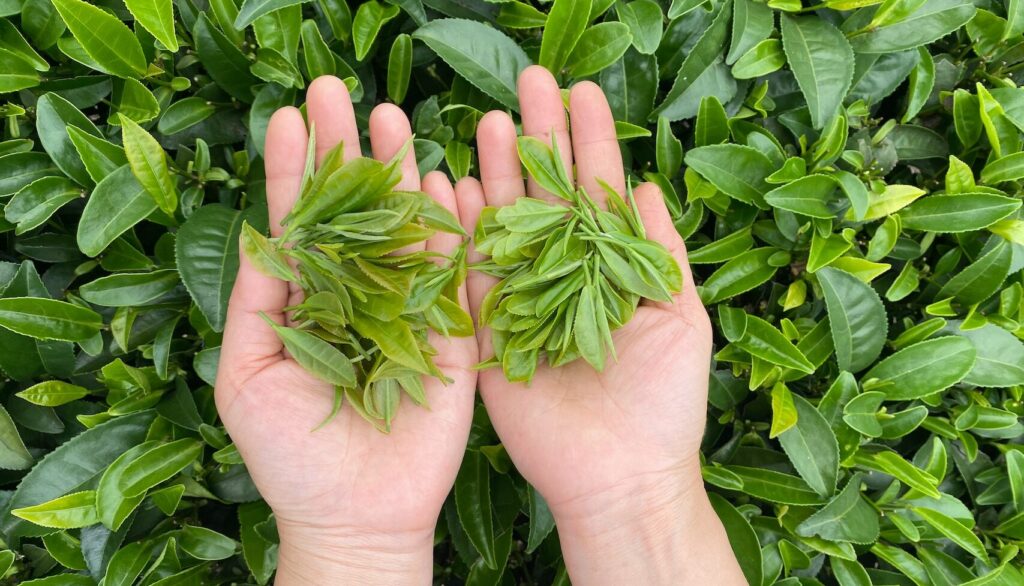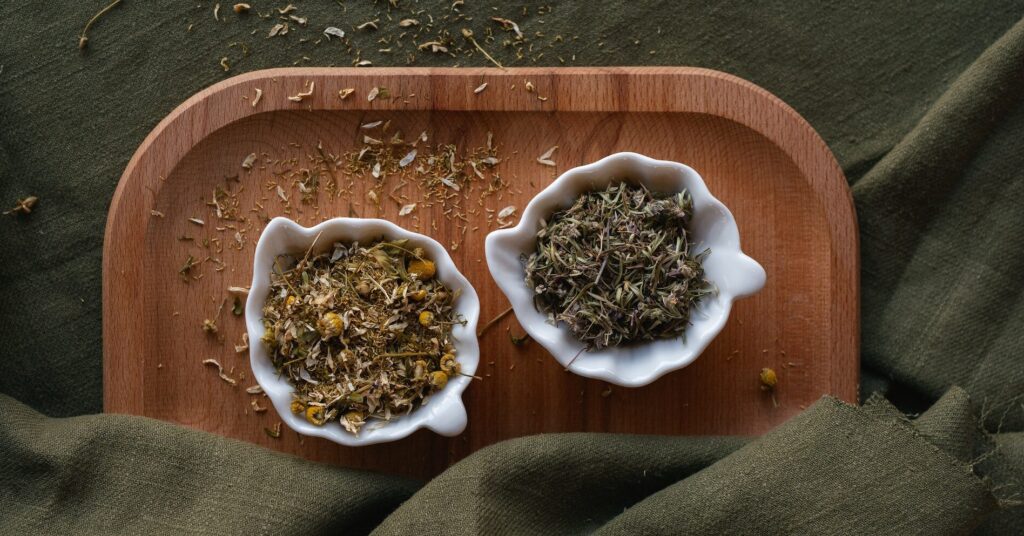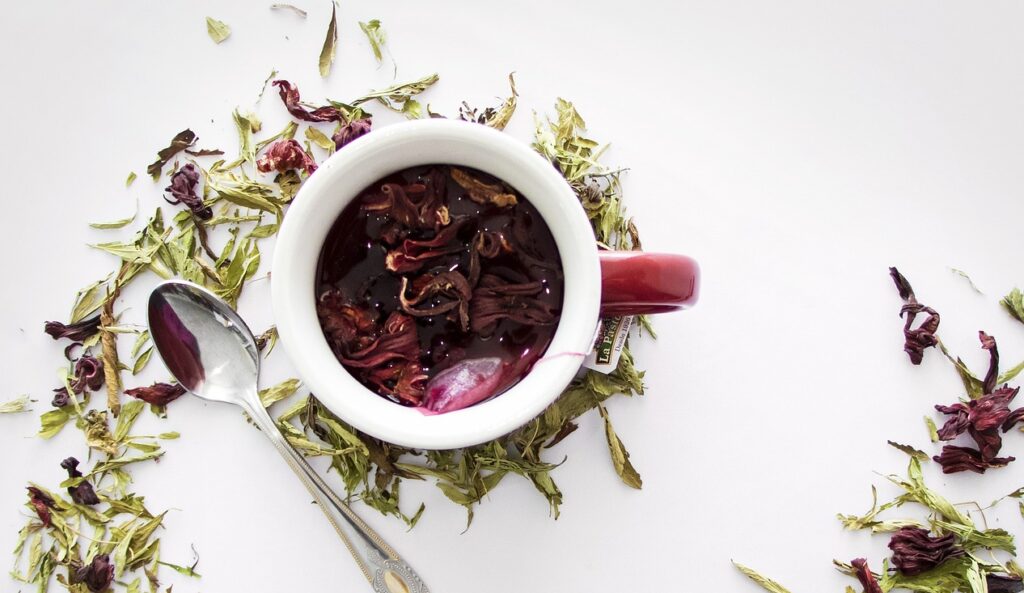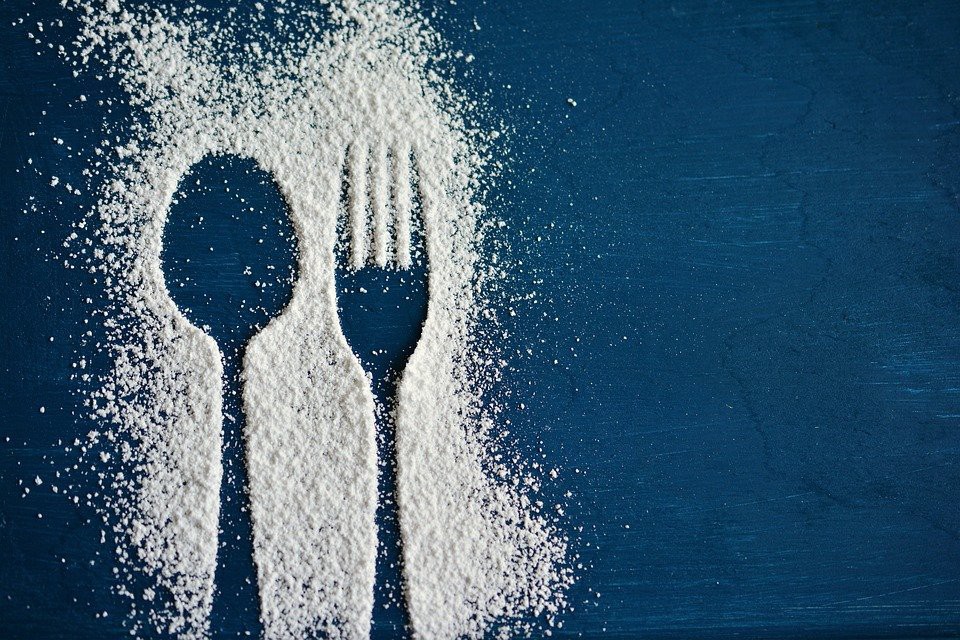Drinking Tea Every Day: Good Or Bad For Your Health?
Nutrition • October 26, 2022 • 9min read
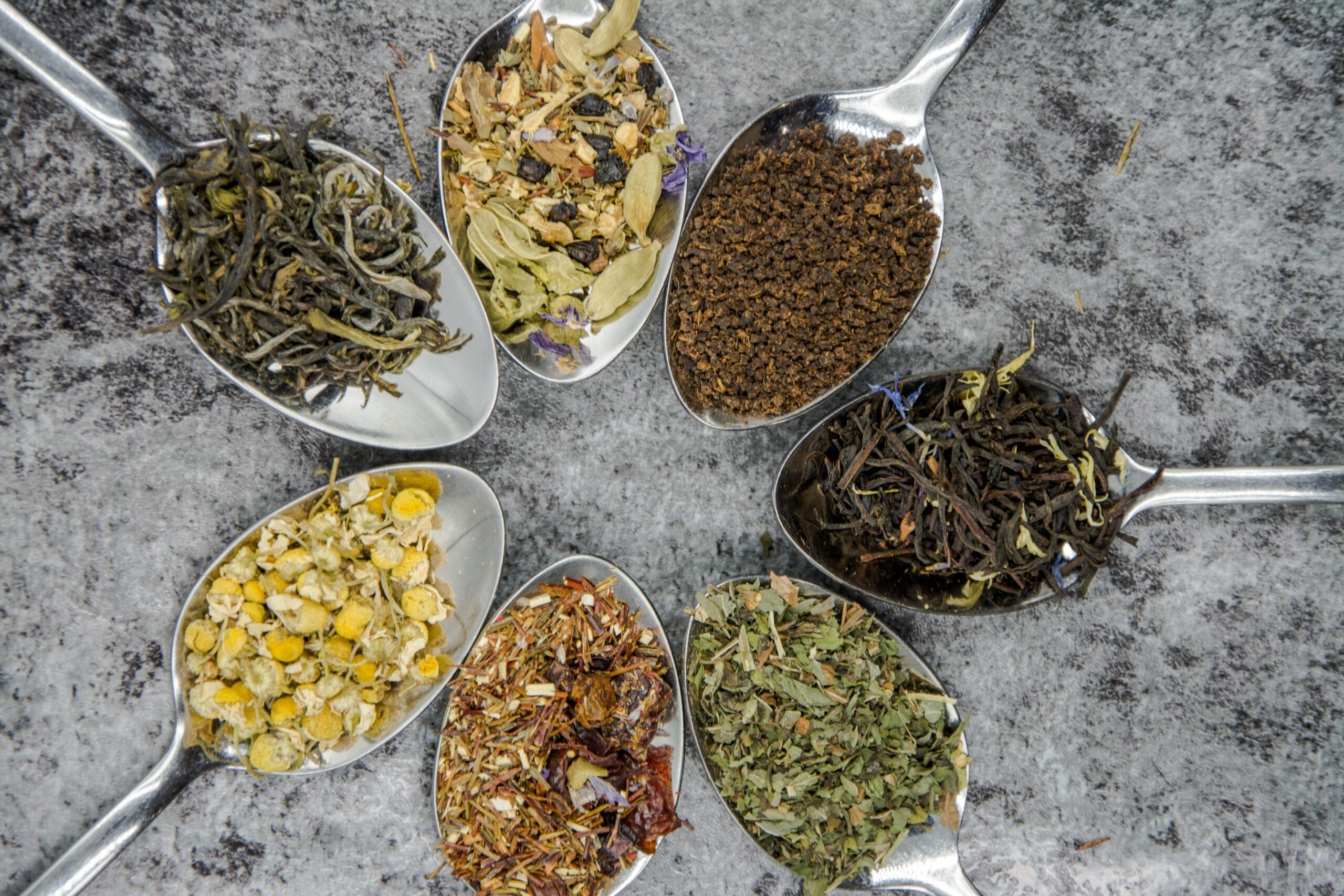
Highlights
- Tea ranks third in popularity following water and coffee
- Due to the nutrients contained, certain herbal teas suggest several health effects
- Daily tea consumption does not harm your body, on the contrary, it provides antioxidants to fight inflammation
- Drinking tea on regular bases is healthy, however, the right choice of tea type and the amount is also important
- Consumption of too much tea may cause unpleasant consequences
Introduction
How many people do you know among your friends or family who do not like drinking tea? We drink this popular drink in summer and winter, in cold and warm forms. But do we know all the health benefits tea offers? Meanwhile, do we know how healthy it may be to drink tea every day?
We did the homework for you and gathered helpful information based on research to help you understand how drinking tea daily affects your body. So, grab a mug of tea of your taste and go on reading this article to learn more about the health benefits of this relaxing drink.
Is It Healthy To Drink Tea Every Day?
If you start your day with tea and wind down only after a warming mug of tea, you may probably wonder- is drinking tea every day healthy? The answer is YES.
Drinking tea daily is healthy as it supplies your body with nutrients derived from different plants, roots, fruits, and berries. The nutrients called polyphenols are strong antioxidants that protect the body from inflammation, boost the immune system, and reduce the risk of acute allergies. Plus, green tea, according to studies, may protect from some types of cancers. All of these properties place tea among other longevity drinks.
In blue zones where people live longer than anywhere else, tea is the number one healthy drink considered to prolong a healthy lifespan. The healing properties of tea are mostly attributed to the polyphenols produced by plants, vegetables, and fruits that prevent the latter from fungi, UV radiation, bacteria, and insects. The specific types of polyphenols found in tea are called catechins renowned for their antioxidant properties.
Besides reducing the risk of oxidative stress in the human body, antioxidants in herbal teas assist in preventing diseases. Furthermore, let us drill down into the healing aspects of tea that lower the risk of illnesses while increasing human longevity.
What Are The Benefits Of Drinking Tea Daily?
Numerous studies on tea consumption and its health implications were carried out to justify our love of drinking tea. In addition to the studies, the lifestyle and nutrition observations of centenarians from blue zones prove tea to be another drink for enhanced longevity.
The above-mentioned catechins are mostly found in green tea, which is harvested from an evergreen tea tree called Camellia sinensis. Drinking green tea every day is definitely good for you as it will enrich your body and blood cells with this powerful antioxidant. When you drink tea you curb the accumulation of free radicals, so, repressing premature aging and promoting extended lifespan.
Below are some examples of what daily tea sipping does for your body.
1. Drinking Tea Daily For Weight Loss
Among the health improvements attributed to tea, weight loss may become the first. Based on the fermentation stages (unfermented, semi-fermented, and fully-fermented) teas deliver various results among them better metabolism. In the wide study review paper, unfermented green tea showed significant effects on human weight loss.
Studies lasting 8-12 weeks with unfermented green tea showed how the synergy of high catechins and low caffeine work towards regulating weight loss and healthy body mass maintenance. Low caffeine (150mg) and high catechins (250mg) affect fat oxidation at a 41% higher rate than the opposite.
The mechanisms behind this activity are complex and are carried out through certain enzymes, specifically by inhibiting them. For example, the pancreas lipase which has a leading role in the digestion of fats, lipids, and cholesterol is one of the enzymes related to weight gain through fat absorption. Consequently, the partial blockage of the activity of this enzyme through the organic compounds in green tea lowers fat absorption and kicks off weight loss.
Yet, fully-fermented black, and semi-fermented oolong tea (traditional Chinese tea) also show similar and in some cases even better results in obesity suppression.
2. Drink Tea For Relaxation And Better Sleep
People drinking tea daily can validate the relaxing properties of tea. Partially, this can be attributed to green tea and other herbal teas containing up to 5% caffeine which has the characteristics of relaxing, also enhancing cognition.
Besides caffeine, tea leaves contain amino acids up to 8%, among which theanine (3-4%) is mostly related to stress relief. However, researchers believe that the correlation of all the amino acids present in tea must be in balance to better control stress and neuronal degeneration. What is more, the reduction of caffeine content and high theanine in tea may turn it into an anti-stress and relaxing drink sustaining deep sleep.
To evaluate the effects of low-caffeine green tea (LCGT), scientists designed a study with 40 Japanese individuals with low energy, short sleep, sleep deprivation, and stress. Assessments showed that people drinking LCGT improved their sleep quality, plus had lower levels of stress markers.
We can conclude that lower caffeine levels and high theanine levels in tea can significantly reduce fatigue and improve sleep. So, you can use tea as a means to wind down before bed and fight insomnia. Spoiler: this is not always the case, read on till the end to learn why.
3. Drink Tea Daily To Boost Your Immune System
Before prescribing any medicine, most doctors may advise you to drink lots of tea to treat cough or common cold. Tea is a diuretic beverage, meaning it makes you want to use the restroom more often. Hence, when you caught a cold and want to get well soon you should drink tea every day for at least 3 cups to clean your body of bacteria and strengthen the immune system.
Although we have innate immune responses to many illnesses, we still develop adaptive immune responses throughout our lives. How can tea drinking contribute to this development?
Flavonoids are wholesome components naturally produced by plants, vegetables, and fruits. These are strong anti-inflammatory compounds preventing you from oxidative stress and many diseases. A potent sub-group of flavonoids are flavanols having many advantages including blood health supporting oxygen transfer to the whole body keeping together overall health.
Tea, mainly green tea, regulates the immune cells’ health and modulates the gut microbiome- that is viruses, bacteria, fungi, and microbes. These processes are mostly orchestrated by flavanols richly present in green and camomile tea.
A well-known flavanol is Quercetin which is a famous anti-inflammatory agent. Among the wide range of health benefits, Quercetin is also believed to defend the immune system. So, what tea does to your body is mainly via the potency of these components.
4. Tea Consumption Helps Relief Period Cramps And PCOS Complications
Again, thanks to the presence of the low amount of caffeine in tea it may play as a “pain-killer” for menstrual cramps. Some famous types of teas helping with menstrual cramp release are ginger tea, green tea, hibiscus, chamomile, peppermint, and spearmint teas.
The latter three types of tea are also good for the condition known as PCOS (Polycystic ovaries syndrome), which 5-20% of women contract during the reproductive period. The condition affecting fertility causes unpleasant outcomes such as weight gain, insulin resistance, unwanted hair growth, and acne. PCOS also affects on psychological level causing anxiety, stress, and depression.
Although this condition is not curable, it can be regulated through diet and lifestyle. The study showed how may peppermint and spearmint teas ease the expression of PCOS symptoms. Plus, through weight reduction, green tea may help to activate insulin sensitivity and lower the risk of possible diabetes which is another malignancy linked to PCOS.
So, including green tea, spearmint, and peppermint teas in the PCOS diet can relieve the symptoms. However, do not exclude the power of black tea.
5. How Is Tea Related To Longevity?
All the above-mentioned health improvements contribute to lifespan expansion. The tradition of drinking tea goes back to ancient times. This simple drink is popular among Japanese and Chinese centenarians, so the investigation of their lifestyle and diet gives us useful insights.
By reducing inflammation, stress, and weight and boosting sleep, the immune system, and protective mechanisms, teas are tightly correlated with human longevity.
What May Happen If You Drink Too Much Tea?
If drinking tea daily can be beneficial for your health, drinking too much tea can harm some functions in your body. In some cases, with too much tea consumption people having an intolerance to caffeine (even lower doses) may experience
- Anxiety– due to extensive caffeination and alertness.
- Dehydration– due to the diuretic effects of tea.
- Insomnia– due to too much caffeine with frequent tea drinking.
- High blood pressure and quickened heart rate– if you like drinking too much strong tea.
- Fatigue– after the caffeine loses its effects.
How Much Tea Should I Drink A Day?
Concluding from the above discussed, you should not exceed the amount of caffeine and tea a day by keeping it up to 3-4 cups. Drink your last cup of tea at least 4 hours before going to bed if you do not want to spend your sleeping hours in the restroom. If you notice stomach aches, do not drink your tea on an empty stomach.
If you are looking for the healthiest teas include green tea, black tea, and oolong tea in your everyday tea-drinking routine. Other types of healthy teas that may help with digestion, better cognition, aging-related disorders, and lower blood pressure are hibiscus, fennel, chamomile, ginger, and peppermint teas.
To make your tea even healthier, brew it in 190F (85C) water, without sugar or other artificial sweeteners. However, you can add natural honey to your tea. Common idea is that honey may become toxic when added to tea or cooked, but it will only lose its healthful effects and give your tea a softer taste.
Do not be afraid to experiment with your tea by adding curcumin or turmeric to make it an even more curable beverage. However, avoid iced or carbonated teas with tons of sugar.
Final Words
After learning the healing impacts of tea, now we understand that tea parties and regular tea intake may not only become a special occasion or a habit but a method to protect health. Drinking tea every day is not bad for you unless you follow the simple “guidelines”.
The main takeaway from this article is that if drinking tea every day is incredibly healthy in many aspects and assists in slowing aging, drinking too much tea all day can be ruinous.

